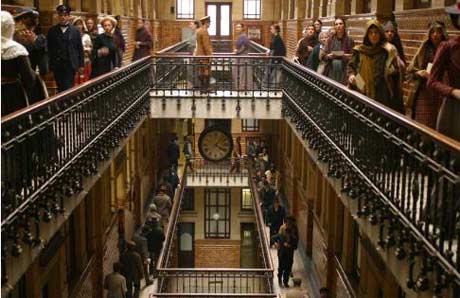This wonderful film got the brush-off from critics when it opened early last year. That fact surprised me: it seemed a sensitive and compassionate exploration of the trials of immigrants attempting to start a new life in America at the dawn of the 20th century. Why was it that people werent buying this story of a Sicilian family who leaves poverty behind on the word of con artists, endure the horror of steerage and the deaths of many of their fellow passengers and suddenly find a dead end in the bigotry and pseudo-science of Ellis Island and its administrators? The reason, I think, is that the new Americans in question are not the noble peasants of neo-realist legend but thoroughly powerless people who dont come across impressively due to their isolation and forced ignorance. There was a whiff of disbelief that people could be like this, and the charge of condescension came out; though theres a trace of that in a few of Emanuele Crialeses decisions, the critics took that mild presumption and ran with it for the touchdown. But whatever you think of Crialeses choices, theres no denying that this is the only film in which people without a shred of context pay an unfair price exacted by arrogant power. Weve become so used to heroic types, even in our social realism, that we dont know how to react to these people, but its this insight that makes the film so valuable. To be fair, it seems less the masterpiece I thought it was last year the film never quite captures Charlotte Gainsbourgs English runaway character, annoys with a mute boy whos a bit of a stereotype and engages in some fantasy sequences that needed a couple more passes through the typewriter. Nevertheless, it goes places most movies wont dare and for that, I am grateful.
(Christal)Golden Door
Emanuele Crialese

BY Travis Mackenzie HooverPublished Jan 14, 2008



